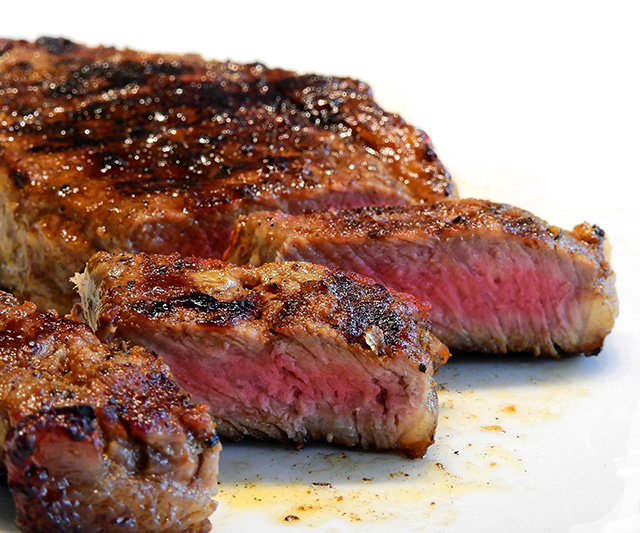The Lion Diet is a restrictive diet that involves exclusively consuming ruminant meat - that is cows, sheep, goats, camels, deer, and buffalos, and their relatives. Just like a lion! It is a more extreme version of a Carnivore Diet, which allows any type of meat and meat other animal products like milk and eggs. You can think of the Lion Diet as as a plant-free, Ketogenic Diet.
 a plate of meat
a plate of meatWhat you can eat
Here are the foods typically included in a Lion diet:
- Meat: Beef, pork, lamb, veal, game meats, and other red meats are staples in a lion diet.
- Organ Meats: Liver, kidney, heart, and other organ meats are often included for their nutrient content.
- Salt, and water.
What you can't eat
The Lion Diet restricts all plant-based foods, including fruits, vegetables, grains, legumes, nuts, seeds, and plant-derived oils. Processed foods, sweeteners, dairy (depending on the diet variation), and beverages like sugary drinks are also excluded. Some versions of the diet allow for limited seasonings, while others may eliminate them entirely. Alcoholic beverages are typically avoided as well.
The Benefits of the Lion Diet
Proponents of the Lion diet claim benefits like improved digestion and weight loss, however, scientific research on its long-term effects and potential risks is limited. Some of the diet's claimed benefits include simplicity, weight loss, improved digestive health, enhanced satiety, and allergen avoidance. Followers often report heightened mental clarity, sustained energy levels, and potential alleviation of symptoms in autoimmune conditions. Additionally, the diet is perceived to help identify specific food sensitivities through its elimination of plant-based foods. Some individuals also claim reduced inflammation as a result of this diet.
Issues with the Lion Diet
The Lion Diet comes with many potential disadvantages and risks. Its extreme restriction of plant-based foods can lead to deficiencies in essential nutrients like vitamins, minerals, and fiber. The diet's high saturated fat content may impact cardiovascular health, and the absence of carbohydrates can affect energy levels and brain function for some individuals. The lack of variety may pose challenges in meeting long-term dietary needs. Additionally, the sustainability and social aspects of such a restrictive diet may be difficult to maintain. Overall it is a diet that is not recommended.
Use as part of an overall weight loss strategy
Relying solely on the Lion Diet as a weight loss strategy might overlook the broader aspects of healthy weight management, which should encompass balanced nutrition, regular exercise, proper hydration, and overall well-being. Any diet should be approached with caution and in consultation with a healthcare professional or registered dietitian.
Related Pages
- Paleo or Caveman Diet — a diet imitating the food humans consumed during the Paleolithic era, about 10,000 years ago.
- Carnivore Diet — involves exclusively consuming animal products and excludes plant-based foods.
- Keto Diet — diet drastically reduces carbohydrate intake and increases healthy fat consumption, so the body enters a state of ketosis where it primarily burns stored fat for energy
- Comparison of diets — a complete list
- Eating Protein for Athletes


 Current Events
Current Events